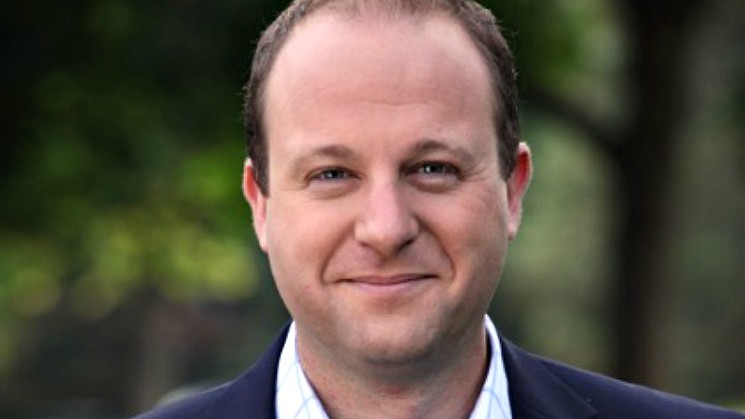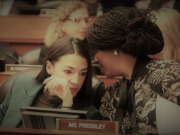Crazy. Ravenous. Damnable. Taken together, this assortment of words would be best used to describe the undead or what are better known as ‘zombies.’
Recently, Rep. Jared Polis (D-CO) used this unsavory illustration to describe speech by entities organized in a corporate form. But while Polis sees undead threats around every aspect of campaign finance regulation, the only things that won’t die are the same misguided arguments by so-called “reformers,” who wish to ever more stringently regulate political speech.
During his stumbling rant, Polis manages to lurch from one poorly constructed argument to the next.
At first, he seems to lack an understanding of the First Amendment. According to Polis: “In the 2010 Citizens United v. Federal Election Commission court case, the U.S. Supreme Court famously equated the First Amendment right of individuals to speak freely with the ‘right’ of corporations to spend as much money as they pleased to influence the outcome of elections.”
The legal definition of a corporation is paramount to understanding why these entities have the right to “speak freely.” Such a definition allows groups of people to associate under a common interest to express an opinion on policies or issues they deem important. Therefore, this definition falls directly within the right to “speak freely” as instructed by the First Amendment.
The First Amendment serves as a crucial counter balance to safeguard against government overreach on our civil liberties. In fact, the First Amendment is so absolute on this point that it reads “Congress shall make no law. . .” that seeks to denigrate or chill that right.
Conversely, applying the First Amendment only to flesh and blood individuals causes a problem in being able to effectively communicate a message. If one were to accept Mr. Polis’ argument that speech by entities organized as a corporation should be illegal because corporations aren’t physical people, then we must apply that same reasoning to unions, which speak on behalf of the workers they represent, or nonprofits, that spend money to advocate for or against particular causes of importance to their members and supporters. Such logic would clearly be flawed. The point is that money is essential for any person or any group, regardless of its form, to disseminate its message.
This simplistic reasoning does not help to promote citizen participation in our civic discourse. Rather, it only serves to chill one of the most important rights in our country’s history.
As if his misunderstanding of the First Amendment was not enough, Mr. Polis awkwardly misses the point on the subject of ‘corporate personhood.’ He manages to expand on the flawed logic of the speech regulatory community by further elaborating that “A corporation is no more a person than a zombie is. Corporations don’t have hopes and dreams. They don’t have free will, compassion, or a conscience. They can’t vote, they aren’t citizens, their hearts don’t beat, and they will never fall in love. They are financial entities formed by shareholders for the sole mission of pursuing profit; in fact their directors have a fiduciary responsibility to ensure that the company only pursues profits.”
With that claim, Mr. Polis manages to take the thoughtless rhetoric of his ilk to new heights. While a corporation may not have physical capabilities, it does have the ability to express the hopes, dreams, and free will of the citizens that form and associate with it. These organizations, like unions and nonprofits, allow for employees or members to pursue a mission that embodies their principles. It’s unfortunate that Mr. Polis can’t see the difference between a legal entity that represents living people and a fictional re-animation of a corpse.
If corporations are zombies to Mr. Polis, then reading the inconvenient lengthy history of corporate personhood (available here) must be the equivalent of Dawn of the Dead. For more than half of the United States’ history, there has been a definition of corporate personhood on the books. This definition has been fundamental to how we define corporations and what rights they have under the law.
This definition is also important because it guarantees the rights of corporations to have ‘equal dignity’ under the law as a human would. Corporations represent human ideals and aspirations. They are taxed, regulated, and comprised of citizens, and, therefore, should be able to express their opinions as any other individual.
For the sake of continuing this argument, Mr. Polis limps with an attempt to scrounge support for the so-called “Democracy for All” constitutional amendment. He explains that the amendment “simply states that the government may distinguish between natural persons and corporations for the purposes of campaign finance laws, and that the government may regulate and set reasonable limits on the raising and spending of money in our election system.”
The misleadingly titled constitutional amendment proposal may have the stated purpose of making elections ‘fairer,’ but it ignores the part of the law that makes it illegal for corporations to spend money on direct contributions to candidates. Rather, this proposal would go much further by chilling the speech of those who wish to spend money on issues that their corporation focuses on. As with so many tired campaign finance “reform” proposals, this amendment would essentially overwrite the First Amendment and serve primarily to entrench the opinions of those who wish to squeeze out their opposition.
The definition of insanity is to do the same thing over and over again hoping that it will provide different results. Such behavior isn’t surprising for the speech regulatory lobby given the current climate in Washington, where chants of ‘dark money is evil’ and ‘corporations are not people’ can be heard ad nauseam. Sadly, this is the same thoughtless expression that we can expect from campaign finance ‘zombies.’














